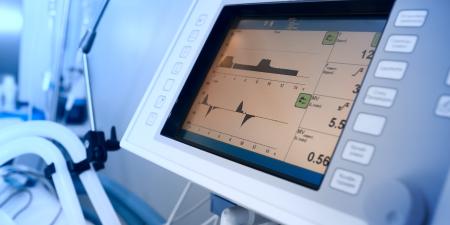I recently conducted my monthly teaching session with the oncology ward team; I asked what they wanted to talk about within the broad realm of palliative care. The unanimous answer: "DNR orders". I asked why, knowing full well their answer. They said, "we know it's required under hospital policy to ask patients their preference about resuscitation, but these cancer patients . . . well . . . you know . . . they're dying . . . it doesn't make sense." Designed to ensure patient autonomy while at the same time identifying patients in whom resuscitation is not indicated, DNR orders have become an example of how a well-meaning application of modern medical ethics has led to untold patient/family suffering and, less appreciated but quite significant to the issue of improving end-of-life care, health professional distress.
Cardio-pulmonary resuscitation (CPR) is a medical procedure designed to restore heart and lung function, originally intended for patients suffering an acute catastrophic event. As an emergency life-saving procedure it is a medical treatment that does not require patient consent. In fact, in most health care facilities, patient or surrogate consent is needed to withhold a resuscitation attempt. Common sense would dictate that CPR is not indicated, at some point in the illness trajectory, in patients dying an expected death from cancer, heart disease, dementia, and other chronic medical conditions.1 Research on CPR effectiveness has confirmed that patients with advanced cancer, patients in renal failure, or patients with pneumonia or multi-organ failure requiring an intensive care unit have a near zero chance of ever leaving the hospital.2 While the research findings are comforting, it is just plain common sense that CPR is a dumb idea for these patients, as they are dying from organ failure unrelated to sudden cardio-pulmonary arrest. Of course the survival figures for these patients are not all zero, the rare patient will survive to leave the hospital, presenting the problem of invoking medical futility as a basis for denying CPR for an individual patient.3
My hospital has a typical DNR policy: (1) Prior to writing a DNR order, it is hospital policy that a discussion should be held between the attending physician and patient or surrogate decision maker; (2) a non-decisional patient with a valid advance-planning document indicating a desire for no resuscitation, is indication for a DNR order. Three years ago the hospital added a futility clause: A DNR order may be written whether or not the patient/surrogate agrees, if 2 physicians deem that a resuscitation attempt is futile, that is, it will not restore cardio-pulmonary function or achieve the expressed goals of a decisional patient; the patient or surrogate must be informed of this decision, along with the hospital administration. Note that, regarding the discussion in point (1), the actual policy uses the word "should" not "is required" (as is true in many hospitals), but physicians and nurses have come to understand the policy as an absolute mandate, fearing legal consequences if they fail to discuss DNR with all patients, including those dying the expected death. Thus, by written sanction and customary practice clinicians feel obligated to discuss CPR as a therapeutic option. The results of this policy are all too familiar—countless hours devoted to family meetings dealing solely with patient-family-staff discord over CPR decisions, rather than focusing on how the hospital can best support a patient and family through the dying process. These conflicts generally revolve around some combination of misperception about the expected benefits/burdens of CPR and/or psychological denial of expected death and/or unresolved psychologic issues between the dying and their family/surrogates. The unnecessary anxiety and tension that develops over DNR orders deflects attention and energy from the more pressing issues of symptom control, resolution of patient-family conflicts, and a focus on anticipatory grief.
Why DNR Orders Are Problematic
Institutional DNR policies were developed prior to any sustained effort at health professional education concerning the communication skills necessary to implement such policies. This failure to provide appropriate education has in part been responsible for fueling the problem. Commonly heard questions such as, "Would you like us to do everything if your heart stops?" or "What would you like us to do if you stop breathing?" or "You don't want us to break your ribs, do you?" should be permanently banned from the health professional lexicon. Jim Tulsky, MD has done some of the most elegant research on DNR and advanced directive communication skills; his findings are not pretty.4-6 In 1 study of DNR orders, he found that in discussions between 31 medical residents and patients, only 4 physicians discussed the likelihood of survival and only 5 mentioned the risks of resuscitation.5
Although increasing attention has focused on education, the question remains whether or not education itself, as an instrument of practice change, is the most appropriate avenue to improve the DNR problem.7 What type of education is required in order to fix the DNR problem? A cursory review of the educational domains needed for mastery of the skill of DNR discussions in the setting of a terminal illness, includes demonstration of basic and advanced medical interviewing skills; demonstration of ability to give unwanted news and discuss treatment limitation; understanding prognostic factors for chronic diseases; understanding the risks, benefits, appropriate indications and contra-indications for the medical procedure of cardio-pulmonary resuscitation; and, finally and perhaps most importantly, the ability of the clinician to self-reflect on the personal meaning of treatment limitation and the finality of caring for a dying patient. The reason for so many diverse educational domains is that DNR discussions should always take place within a larger framework of an advanced care planning discussion, a discussion that includes disease prognosis and mutually agreed upon goals of care. And yet, despite this daunting list of necessary skills, who is most likely to be entrusted, or rather, assigned, to discuss DNR orders in teaching hospitals?—The lowest person in the medical hierarchy—the intern, if not the junior or senior medical student. Why? Because, the discussion of DNR represents an unsolvable contradiction for the physician, resulting in a level of distress that makes avoidance of the task a desired goal. Senior physicians routinely pass the responsibility down the line to those who are least able to refuse. When is the last time you saw senior residents lining up for the chance to "go get the DNR order"?
No matter where I go and teach about end-of-life care, the same theme emerges—a sense among physicians and nurses of being forced by institutional policy, reinforced by the fear of medical malpractice, to discuss DNR issues in the face of imminent death from "natural causes." Forget for a moment that doctors often have poor communication skills and that they fail to appropriately contextualize DNR orders within the larger goals of care for the dying—it is the very nature of being forced to do something that feels wrong, that is such burden to the clinician. Why should we expect clinicians to feel good about caring for the dying when they feel pressured, by the real or perceived threat of malpractice or institutional sanctions, to offer a medical procedure they know is not only useless, but downright harmful? Should we continue efforts to teach communication skills around advanced care planning? Absolutely. But, I have now come to believe that the inherent tension of the current paradigm, whereby clinicians feel an obligation for mandatory DNR discussions in all patients, cannot be resolved solely by education. We must seek DNR policy reform that brings the reality of CPR as a medical intervention in line with the professional responsibility of caring for the dying.
Proposed Policy Reform
What would DNR policy reform look like? First and foremost it would acknowledge that physicians are not required to discuss the procedure of CPR, in all its gory details, in the setting of expected death. Writing a DNR order in this setting, without a complete discussion of the risks/benefits and purpose of CPR, is well within the capacity of an attending physician. Whether or not any discussion of CPR is needed in this setting is still considered highly contentious, although some hospitals have adopted so-called "unilateral DNR orders," sometimes requiring 2 physicians to agree, or an ethics committee consultation, or notification of the decision to the patient/surrogate and/or hospital administration.7-9 A middle ground approach is to talk to patients/surrogates about the goals of care and mention "breathing machines" or "life support" as a euphemism for CPR. Language that I often teach to resident physicians when discussing end-of-life goals and treatment options is: "I will provide you with maximal treatments for your pain or any other symptoms you may experience; I do not recommend the use of breathing machines or other artificial means to prolong your life." Note, this language contains an explicit physician recommendation, and demonstrates appropriate professional leadership, rather than abrogating such leadership in favor of unrestrained patient autonomy (as in, "What would you like us to do if your heart stops?") Whatever the exact phrasing used, I strongly support the notion that CPR does not have to be explicitly discussed when death is expected. Furthermore, I do not believe such a decision requires a mandatory ethics committee decision or notification of the patient/surrogate or hospital administration. Rather than external control to ensure that the order is appropriate, I favor a hospital policy that links recognition of impending death to an institutional commitment to end-of-life care---a formal family support/bereavement program that begins at the time death is anticipated and/or a mandatory visit by a palliative care nurse/team member to assess for adequacy of symptom control and discussion of care setting options.
But what about patient autonomy—doesn't this approach take an important decision away from the patient where it rightfully belongs? Tomlinson and Brody, discussing the authority of physicians to make decisions about futile treatments say, "physician authority over the use of futile treatment is the protection of patient autonomy...it is inherently misleading to offer a futile treatment, and so it is corrosive of autonomous choices to do so."3 But what about paternalism—won't this type of policy be dangerous by giving too much power to the clinician? Again, Tomlinson and Brody clearly articulate that the balance between patient autonomy and clinician paternalism is not "a zero-sum game: whenever the patient gains power, the physician loses it, and vice versa, but rather can be one of "shared power."3
I could imagine a new DNR policy, added to an existing policy that discusses the important role of clinicians in setting the tone for routine advanced care planning, including DNR discussions, as something like this:
The attending physician may write a DNR order after a decision has been established between the physician and a decisional patient or surrogate, that the goal of future medical care is to provide a level of care that does not interfere with the natural illness progression toward death. The application of this policy is appropriate in the following situations:
- When a life-prolonging medical treatment is withdrawn and the expected outcome is death (eg, withdrawal of mechanical ventilation, or artificial hydration).
- When patients exhibit signs and symptoms of the syndrome of 'imminent death' (aka actively dying), in the setting of a terminal illness.
- When patients with chronic illness, or acute illness in the setting of a severe chronic illness, have declining functional ability so that death is expected within days-weeks.
This type of policy would rightfully restore a measure of physician authority over a medical procedure and eliminate the paradox of offering a useless procedure in those situations where resuscitation and unrestrained patient autonomy has no role. However, this policy is by no means perfect. At issue is when and how it is decided that death will likely occur within days-weeks and whether or not physicians would abuse their responsibility by ignoring the central point of the policy---that a mutual decision to forgo life-prolonging medical treatment is established as the goal of care, prior to writing the DNR order. Several options for dealing with this include establishment of a quality improvement system for DNR orders that would track usage and appropriateness, mandatory clinician education that includes appropriate demonstration of an end-of-life goal setting discussion (mandatory demonstration of the skill of actually performing CPR is already required, why not add the skill of discussing CPR!), and distribution of education material for patients/surrogates that explains the institutions' DNR policies.
I am eager to give such a policy a try as I see the current policy causing far more harm---patient/surrogate/staff conflicts, loss of professional authority over a medical decision, lack of attention to important end-of-life tasks, psychological harm to clinicians and families, patient indignity, cost---than good--respect for patient autonomy. There have been hundreds of thousands, if not millions of words written about DNR orders. I don't expect mine will be the last. I welcome your comments on both the need for DNR policy reform and suggestions for new policy initiatives. I would like to see palliative care practitioners take a leading role in working to define new DNR policies that better reflect the realities of care at the end of life.
References
-
Blackhall LJ. Must we always use CPR? N Engl J Med. 1987;317:1281-1283.
-
Junkerman C, Schiedermayer D. Practical Ethics for Students, Interns and Residents. 2nd ed. Frederick, Maryland: University Publishing Group. 1998.
- Tomlinson T, Brody H. Futility and the ethics of resuscitation. JAMA. 1990;264(10):1276-1280.
-
Tulsky JA, Fischer GS, Rose M, Arnold RM. Opening the black box: how do physicians communicate about advance directives? Ann Intern Med. 1998;129:441-449.
-
Tulsky JA, Chesney MA, Lo B. How do medical residents discuss resuscitation with patients? J Gen Intern Med.1995;10:436-442.
-
Tulsky JA, Chesney, MA, Lo B. See one, do one, teach one? House staff experience discussing do not resuscitate orders. Arch Intern Med. 1996;156:1285-1289.
-
Harlow NC, Killip T. Beyond do-not-resuscitate orders: A house staff mentoring credentialing project on advanced directives. Arch Intern Med. 1997;157:135.
-
Swig L, Cooke M, Osmond D, et al. Physician responses to a hospital policy allowing them to not offer cardiopulmonary resuscitation. J Amer Geriat Soc. 1996; 44:1215-1219.
-
Layson RT, McConnell T. Must consent always be obtained for a do not resuscitate order? Arch Intern Med.1996;156:2617-2620.



